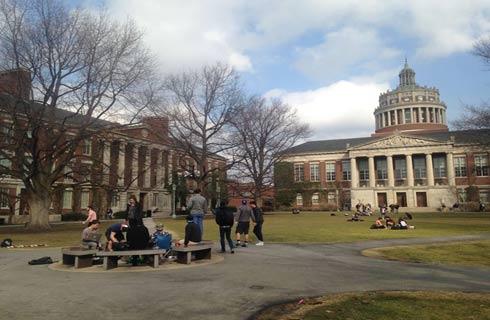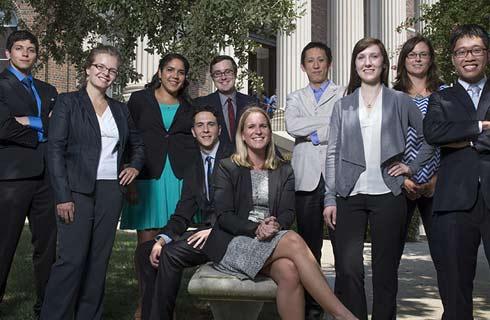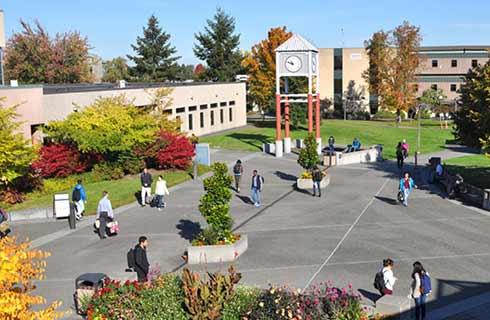能源工程理学学士
Bachelor of Science in Energy Engineering

学历文凭
Bachelor Degree

专业院系
Energy Engineering

开学时间

课程时长

课程学费

国际学生入学条件
Student who has earned a high school diploma or a GED and has no post-secondary coursework
Student who has earned a high school diploma or GED and attempted 17 or fewer credits (semester hours) of college coursework at a regionally accredited college/university before attending Penn State
Official transcripts, which include all subjects studied each year and the grade/mark earned in each subject. TOEFL: A minimum TOEFL score of 80 on the Internet-based, TOEFL ITP Plus for China: A minimum TOEFL score of 550 , IELTS: A minimum IELTS score of 6.5 on the academic test.
International Baccalaureate (IB): Score of 5 or higher on the English Language & Literature (English A) exam
IDP—雅思考试联合主办方

雅思考试总分
6.5
- 雅思总分:6.5
- 托福网考总分:80
- 托福笔试总分:160
- 其他语言考试:Duolingo English Test (DET): A minimum score of 120 is required.
CRICOS代码:
申请截止日期: 请与IDP联系 以获取详细信息。
课程简介
The undergraduate program in energy engineering is designed to reflect the growing impact and demand for energy in society and to equip students with the knowledge necessary to achieve the following career and professional goals: become valuable contributors in addressing society's energy needs and demands; successful leaders in advancing the technology and management of energy; innovators and entrepreneurs in the energy sector; and educators, practicing engineers, and national leaders on energy and associated environmental, health and safety, and policy and economics issues. The program integrates skill sets in the physical sciences (chemistry, engineering, mathematics, and physics) and social sciences (economics, policy, and management) to ensure successful career opportunities and growth within energy-related industries, government agencies, and academia.<br><br>The courses are structured to enable students to understand engineering fundamentals and apply the knowledge to solve problems in the production, processing, storage, distribution, and utilization of energy using multiple techniques as synthesis, analysis, design and case studies. Inquiry-based teaching methods and lab experiences are emphasized. The faculty research and scholarly activities are integrated into the curriculum. The program is designed to train students to be lifelong learners, problem solvers, and energy industry leaders. The educational opportunities are sufficiently flexible, broad, and diverse to enable students to tailor their educational experience to particular interests, background, and expected role in society. Flexibility in the curriculum allows other students in energy related programs such as agricultural and biological, chemical, civil, electrical, environmental, mechanical, mining, nuclear, and petroleum engineering, materials science and engineering, industrial health and safety, and energy business and finance to have dual or concurrent degrees, minors, or options
相关申请
 预科
预科 奖学金
奖学金 实习机会
实习机会 在校学习
在校学习 跨境学习
跨境学习 校园授课-线上开始
校园授课-线上开始 在线/远程学习
在线/远程学习
开学时间&学费
学费信息仅供参考,请与IDP联系以获取详细信息
| 开学时间 | 时长 | 学费 | 地点 |
|---|
学校排名

世界排名78
数据源:
泰晤士高等教育世界大学排名
关于宾州州立大学帕克分校

每122位本科毕业的美国人中就有1个是PSU的校友1855年建校的宾州州立大学目前已经有了24个校区,University Park是其中的旗舰校区,也是规模最大的校区,容纳学生45000余人。距离宾州州府Harrisburg仅仅17英里的地理位置优势让University Park成为最受欢迎的PSU校区,同时也成为了录取率最低的校区。Party School的称号在PSU身上由来已久,但同时,每年专程跑到PSU校内面试应届毕业生的公司和政府部门超过1000个,这里的学术水准绝对不是盖的。美国每50个工程师中,就有1人是PSU的毕业生PSU的理工课尤其是工程学专业非常知名。实际上从1988年开始,PSU从工业界拿到的学术研究资金总额一直排名美国所有大学的前两位,仅次于麻省理工。很多工业界企业干脆直接将产品研发放在PSU进行。另外,地球与矿产科学学院在美国同类学院中排名第6,其中的地理专业全美第一,地质专业全美第三,均属世界一流学科项目。理论性大众传媒专业同样排名全美第一,与哥伦比亚大学的应用型大众传媒并驾齐驱。 Penn State-University Park的申请竞争相当激烈。申请材料中主观性的PS与简历部分属于非要求项。实际上,每年,单纯从成绩角度做出的录取决定占总录取人数的2/3。所以,想去PSU,得先保证有一个靠谱的标准化成绩。
本校相关课程
其他相关课程

管理工程应用科学学士学位
 滑铁卢大学
滑铁卢大学学历文凭
Bachelor Degree
开学日期
课程费用总额


工学学士
 劳伦森大学
劳伦森大学学历文凭
Bachelor Degree
开学日期
课程费用总额


安大略大学电子工程技术员文凭
 圣力嘉学院
圣力嘉学院学历文凭
Bachelor Degree
开学日期
课程费用总额


大学转学计划-工程
 哥伦比亚学院
哥伦比亚学院 学历文凭
Foundation for Undergraduate
开学日期
课程费用总额


生物系统工程哲学博士
 曼尼托巴大学
曼尼托巴大学学历文凭
Ph.D.
开学日期
课程费用总额


生物系统工程学硕士
 曼尼托巴大学
曼尼托巴大学学历文凭
Masters Degree
开学日期
课程费用总额










 美国
美国





